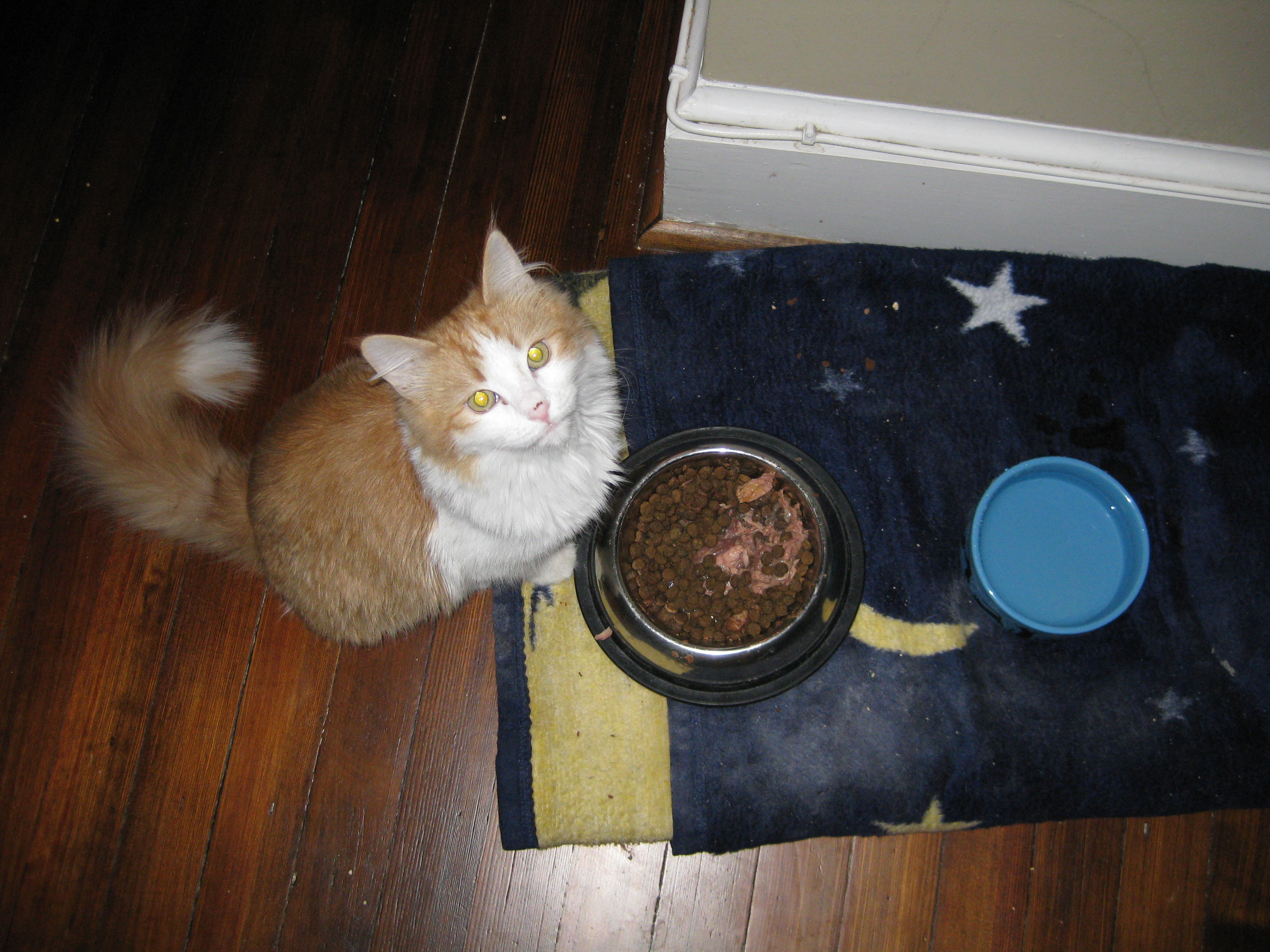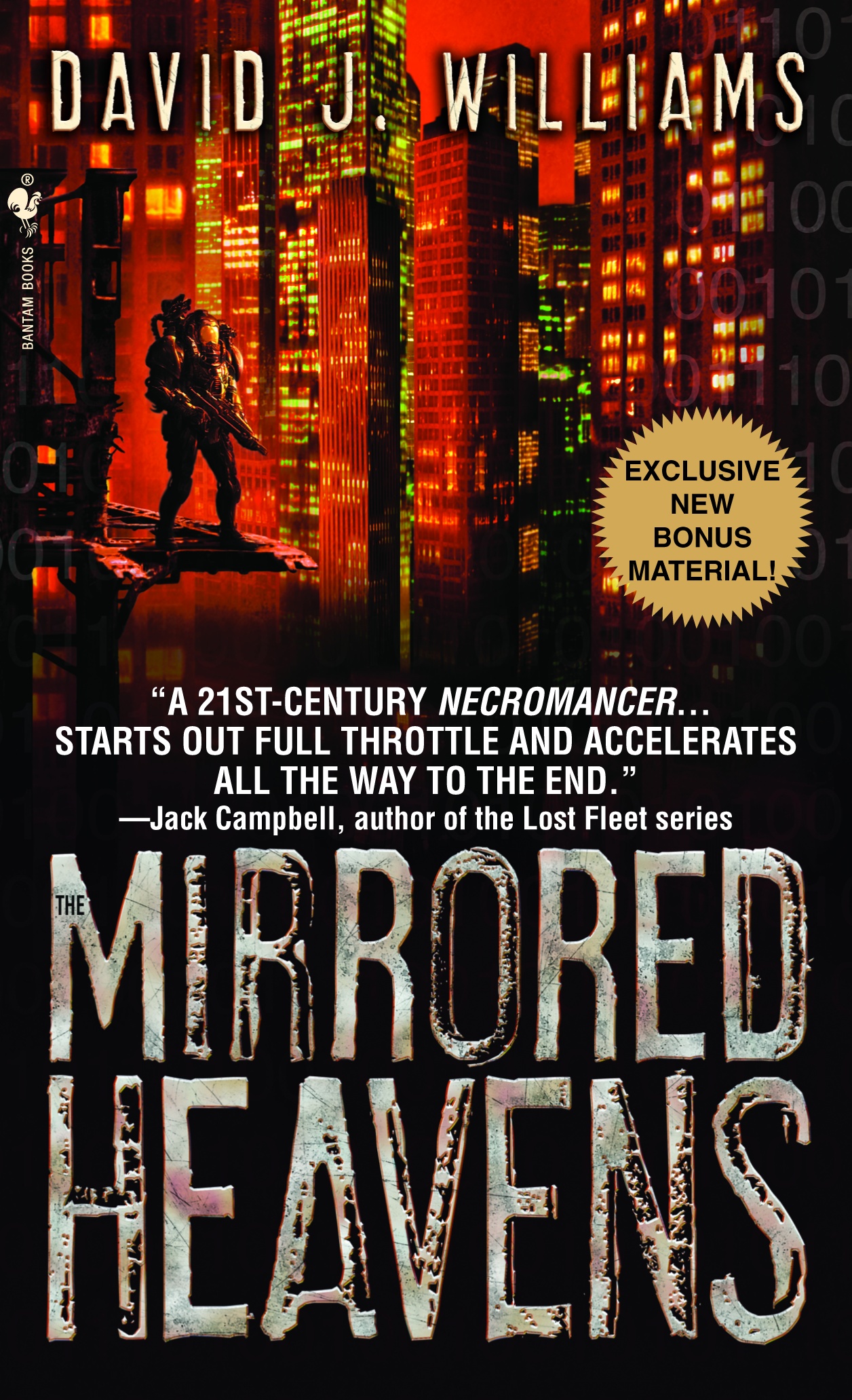24 hours to go until inauguration, and the last post of the Bush presidency goes to fellow scribe David Coe. I don’t think he planned it that way, but someone had to do it. (Interview questions are from the SFnovelists website.)
David B. Coe (www.davidbcoe.com) is the Crawford Award-winning author of ten fantasy novels and several short stories. A refugee from academia, David has a Ph.D. in history and has taught at the university level. In a life prior to that prior life, he was a political consultant. The Horsemen’s Gambit is the second book in his Blood of the Southlands trilogy. It is to be published on January 20, 2009, which is good because there’s nothing else of importance happening that day to draw attention away from the book’s release….
Q) Can you tell us a bit about The Horsemen’s Gambit and the Blood of the Southlands series?
DBC) Blood of the Southlands begins with The Sorcerers’ Plague as a sort of medieval medical thriller. An old woman named Lici has set out to avenge a injury done her decades before by conjuring a plague. Before long though, the plague spirals far beyond her control, and in The Horsemen’s Gambit, the damage done by the plague to the Qirsi, the sorcerers of the Southlands, convinces their enemies, the Eandi, to attack Qirsi lands in the hopes of winning back territory lost during the Blood Wars. Along the way there’s political intrigue, some romance, and a web of personal interactions tinged with all this ethnic baggage.
Those are the basic plot points. In a larger sense this series, like my five-book Winds of the Forelands sequence [Rules of Ascension, Seeds of Betrayal, Bonds of Vengeance, Shapers of Darkness, Weavers of War], which is set in the same world, deals with issues of race, ethnic identity, and prejudice. My characters, particularly those who seek to control the chaos unleashed by Lici’s curse, are constantly fighting against the destructive power of ancient hatreds. Ultimately this newest book — like those that came before it and the one that remains — is about overcoming history and transcending bigotry.
Q) Race, prejudice, ethnic identity — That all sounds pretty familiar. Is Blood of the Southlands set in a created world or our own?
DBC) It’s definitely a created world, but as with all my work, Blood of the Southlands touches on issues of great importance in what we call, for lack of a better term, the “real” world. My LonTobyn series [Children of Amarid, The Outlanders, Eagle-Sage] touched on ecological themes. Winds of the Forelands and Blood of the Southlands deal with race. I have another project that I’m working on that focuses on drug addiction. I write books that I hope will entertain. I strive to make them fun — as I said, there’s lots of action and intrigue, romance and even humor. But they also deal with serious issues that resonate with social concerns in our own lives. I do this because I find it more interesting to write books that grapple with big questions. And if some of my readers come away from the books thinking about race or ecology or substance issues in a new way, all the better.
Q) What is it about fantasy that attracts you?
DBC) Well, in part I’m drawn to fantasy precisely because I can create worlds that then serve as mirrors for our own world. Admittedly, these are imperfect mirrors, but they’re mirrors nevertheless. I can make the Forelands/Southlands universe and create racial tensions that are complex and compelling, and yet different enough from the racial problems in our own world that no one will be offended by the books. Speculative fiction offers us a unique opportunity to look at ourselves through a lens that both distorts and magnifies. The distortions allow us to distance ourselves and perhaps examine an emotionally fraught issue without so much emotional heat. The magnification can make us see things that we might otherwise miss.
I’m also drawn to fantasy, as well as science fiction, and dark fantasy, and horror, and all the other subgenres in our field, for the simple reason that they’re so much fun to read. I love magic. As a friend of mine wrote elsewhere just the other day, I believe in magic on some level. And being able to write magic into the lives of my characters, giving them the ability to shape their world in ways that I can only dream of doing myself, is enormously entertaining.
Q) Why did you decide to make Besh, one of the protagonists of Blood of the Southlands, an old man?
DBC) Well, let me start by saying that I’m not certain I “make” any of my characters, any more than I’m certain that I control their actions. My characters present themselves to me. They clamor for my attention, and when I finally turn my mind’s eye on any one of them, he or she tells me his or her story. When I first started conceiving of the Blood of the Southlands trilogy, Besh was the first character I met. I didn’t know at the time why it was important that he tell so much of the story, but I trusted him and also my instincts as a writer, which told me that he was crucial to the entire series. I think I was drawn to him, at least in part, because he was so different from other protagonists I’d written and other heroes I’d encountered as a reader. Yes, he’s old. He’s also got that stubborn sense of “I know myself, and I know the world, and by God you’re going to listen to me,” that we sometimes find in our elderly friends. He’s not particularly strong physically, and he wields little influence or political power. But he’s clever and wise and uncommonly brave. He has a profound moral sense and is intensely loyal to his people and his family. Over the course of writing the three books of the Southlands series he became just about my favorite of all the characters I’ve ever written.
Q) You’ve been a historian, you’ve worked in politics — it seems you came to writing relatively late in life. How did it happen?
DBC) I suppose I did come to it a bit late, but the irony is that I’ve wanted to be a writer since I was a kid. I wrote and illustrated my first books in first and second grade — and given the quality of my illustrations, it’s a good thing I can write. I went to college with every intention of majoring in creative writing, but got sidetracked by concerns with practical considerations, like making a living. I tried political consulting, but found it disillusioning. So I went to grad school, got my degree in history, and applied for a bunch of teaching positions. But the summer after I completed my degree I found myself with lots of free time on my hands. My grad work was done, but the academic jobs hadn’t been listed yet. And my wife said to me, “You know, since the day we met you’ve been talking about writing a book. You have some time now. Why don’t you spend the summer writing?”
I did, and by the end of the summer I had several short stories written (none of them has ever seen the light of day, and none of them ever will) as well as the first five chapters of what would eventually be Children of Amarid, my first novel. A friend of mine agreed to act as my agent and he shopped the book around while I applied for teaching jobs. I got the perfect academic job offer — teaching environmental history in Colorado — and my first nibble from Tor Books within 24 hours of each other. I chose writing and have never looked back.
Q) Aside from writing, what do you do for fun?
DBC) Well, I’m a husband and a dad, which are the two things that mean the most to me. My daughters are 13 and 9, and a lot of my non-work time is taken up with stuff I do for or with them. I’ve been a Soccer Dad, a Swim Dad, a Dance Dad, a Music Dad, and a Theater Dad. And because my wife is a full-time college professor, I do most of the grocery shopping, a fair amount of laundry and house stuff, etc. In addition, I’m active in my community — I run a local food cooperative, I’m on the parents’ council of my older daughter’s school, and I’m on the town council here in our little village. But when I’m not doing any of that I have quite a few outside interests. I like to hike and birdwatch. I’m a dedicated amateur photographer and actually had my first one-man exhibit in 2008. Nature and landscape photography mostly. I play guitar and sing — folk, rock, a bit of bluegrass. I listen to music all the time. I look at butterflies and run a local butterfly census here in my home town. I’m a bit of a political junkie, and I’m confident that my professional output will be greater in 2009 than it was last year, simply because I won’t be checking political web sites every 3 minutes.
Q) What’s a typical day like for you?
DBC) A typical day? I’m not sure there’s any such thing — did I mention that I’m the father of a teenager? My routine looks something like this: We’re up at 6:30 am. I make lunch for my younger daughter and do what I can to get the girls moving. After my wife and I get the girls to their schools, I go to the gym for an hour or so. Exercise is crucial for me; without my morning workout I’m not sure I could function. I get back, have a light breakfast, check my email, and begin the day’s writing. I shoot for 6-8 manuscript pages a day, which translates to about 1500-2000 words. I’m not a particularly fast writer, but if I can write 35 to 40 pages a week, that’s a book every 6 months or so, which isn’t too bad a pace. I might have to pick up one of the girls from school or take them to dance or sports practice, but I can usually get back to work for a while longer. I knock off around 5:00 or 5:30 and the rest of the evening is family time. I don’t work on weekends, and I don’t work many nights. I work at home, so it would be very easy to be sucked into working all the time. To prevent this, I set strict boundaries. I have work time and family time. I’d probably get more written if I was less strict about this, but that’s a choice I’m comfortable making.
Q) What are you working on now?
DBC) The third and final Blood of the Southlands book is finished and handed in to my editor (it’s scheduled for release in January 2010). I’ll have revisions to do eventually, but for now I’m working on a new project that is completely separate from anything I’ve done before. It’s alternate world fantasy set in a place that’s roughly analogous to early Renaissance Europe. There’s a magical element and each book is a stand alone mystery with recurring characters. I don’t generally like to talk too much about works in progress until I’m further along than I am with this series. Suffice it to say that I’m very excited about this one. I hope to see the first book in print sometime in 2010.
David B. Coe’s personal website can be found at www.davidbcoe.com. He blogs with some regularity on both LiveJournal and WordPress, and he is part of the MagicalWords.Net writing blog with fellow fantasy authors Faith Hunter, Misty Massey, and C.E. Murphy. The Horsemen’s Gambit, book II of his Blood of the Southlands trilogy, can be purchased through Amazon.com. (Release date: January 20, 2009)










